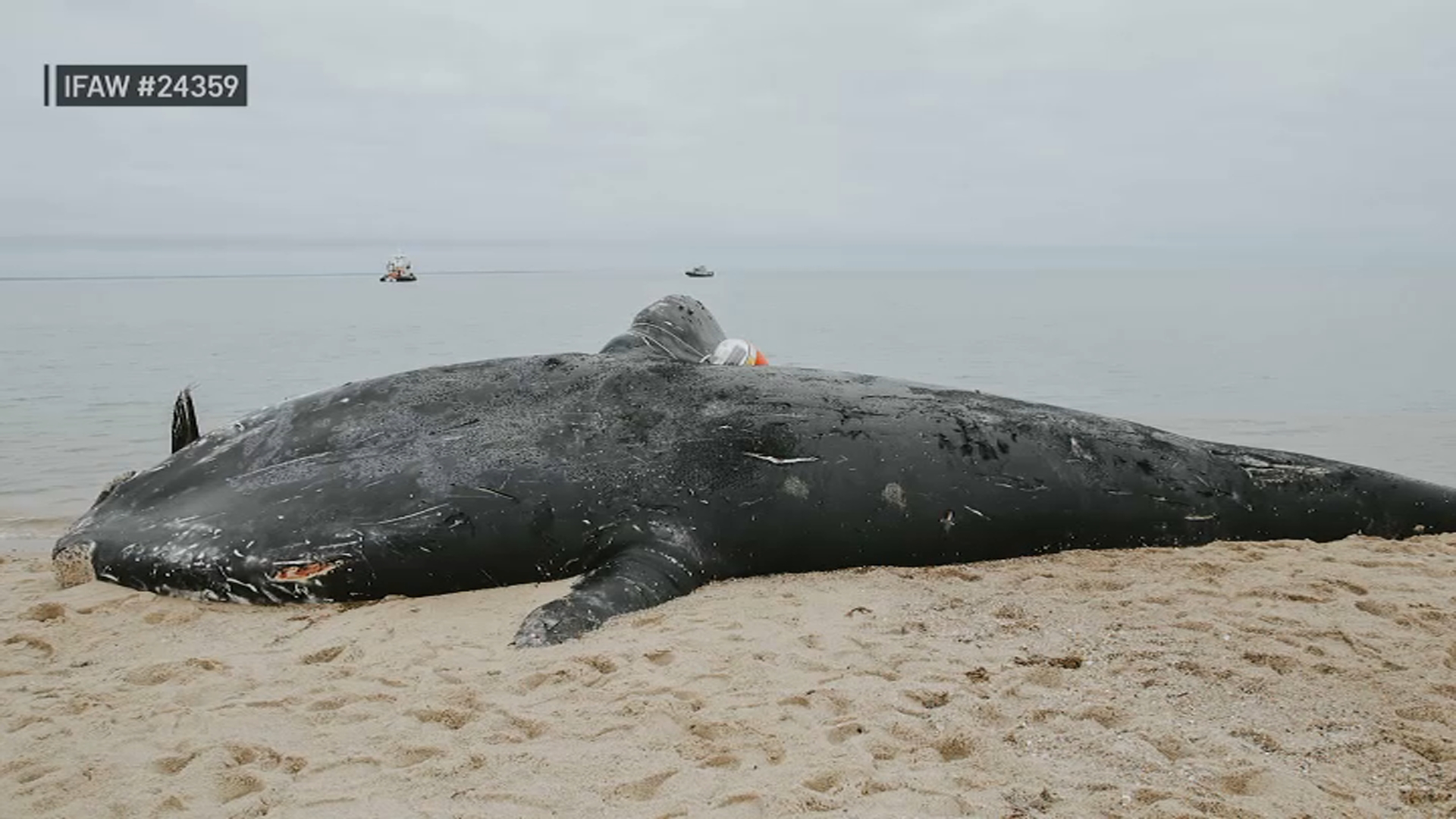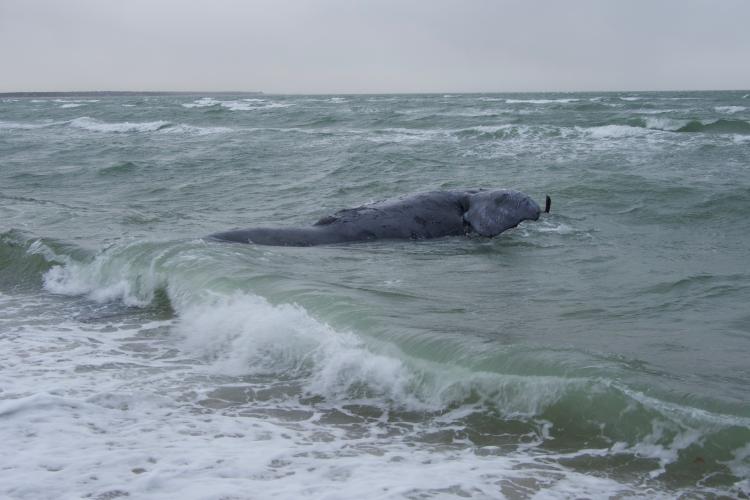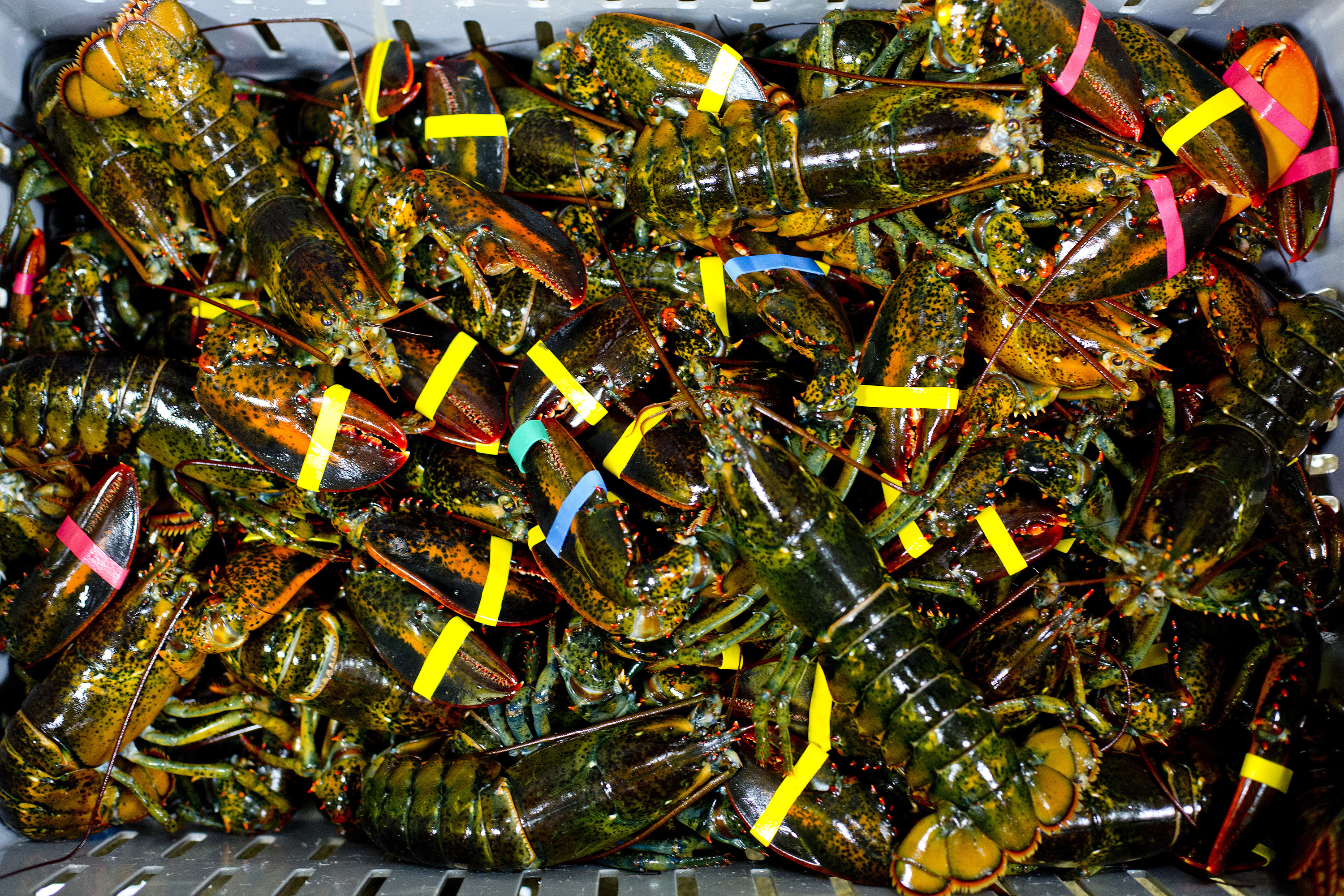
The North Atlantic right whale found dead off Martha's Vineyard in January was entangled in a rope from Maine lobster gear, federal officials said Tuesday.
NOAA Fisheries determined that the rope's markings, including the purple zip ties connected to it, were consistent with the ropes used in Maine water traps. Environmentalists, commercial fishermen and the federal government have been in court for years about laws designed to protect the endangered whales from entanglement.
WATCH ANYTIME FOR FREE
>Stream NBC10 Boston news for free, 24/7, wherever you are. |
The whale, recorded as Catalog #5120, was found near Joseph Sylvia State Beach in Edgartown with a rope wrapped around her tail Jan. 30. The rope and the whale's position deterred NOAA Fisheries from identifying the whale initially, but three days later, the whale was determined to be a 3-year-old female.
Get updates on what's happening in Boston to your inbox. Sign up for our >News Headlines newsletter.
A preliminary necropsy confirmed "chronic entanglement," determining the rope had been tangled in her flukes for at least 17 months. As she grew, the rope became further embedded in her tail and caused severe body deterioration, according to NOAA Fisheries.
The full necropsy results, including an exact cause of death, were still pending as of Tuesday.
The whale is believed to have been the eighth in her family to have been entangled in fishing gear, the New England Aquarium said in a release earlier this month.
The first time Catalog #5120 was spotted with the rope wrapped around her tail was in August 2022 in the Gulf of St. Lawrence, Canada. In January and February of last year, researchers tried to untangle the cord off the coast of Cape Cod.
Six months later, the whale was seen in the Gulf of St. Lawrence again, and researchers reported a decline in body condition due to the rope becoming more tightly wrapped around her tail.
Get updates on what's happening in Boston to your inbox. Sign up for our News Headlines newsletter.
North Atlantic right whales are nearing extinction, according to NOAA Fisheries. As of early February, there were only about 360 left, with less than 70 reproductive females.
The species' main threats are fishing gear and vessel strikes, the agency said.
"The case of Catalog #5120, who was entangled for at least 17 months as the gear became more embedded into her flukes as she grew, is another example of why prevention of entanglements needs to be prioritized," Philip Hamilton, a senior scientist in the Anderson Cabot Center for Ocean Life at the New England Aquarium, said in a statement. "Without on-demand fishing gear being implemented throughout the right whale’s range in U.S. and Canadian waters in an expedited fashion and with significant funding support, entanglements will continue to threaten the survival of this critically endangered species.
More on the North Atlantic right whales
NOAA Fisheries advises anyone who finds an injured or stranded whale, dead or alive, to stay at least 150 feet away. They should report the animal to The Greater Atlantic Marine Mammal Stranding Hotline at 866-755-6622 or the Southeast Marine Mammal Stranding Hotline at 877-942-5343.
This week, a coalition of environmental groups has sued the federal government to try to force the finalization of ship speed rules that the groups say are critically important to save the North Atlantic right whale by requiring vessels off the East Coast to slow down more often.
The environmental groups filed in federal court Tuesday with a request to allow a paused lawsuit about the ship speed rules to go forward. Members of the groups have criticized the federal government for delays in releasing the final rules and said they hope to force a deadline via their lawsuit.
“The federal government has known for years that right whales urgently require expanded vessel strike protections, yet has repeatedly kicked the can down the road,” said Jane Davenport, senior attorney at Defenders of Wildlife, one of the groups involved in the lawsuit.
NOAA announced the proposed ship speed rules in summer 2022. The rules would expand slow zones off the East Coast that require mariners to slow down. They would also require more vessels to comply with those rules.
NOAA is still working on finalizing the rules, said Andrea Gomez, a spokesperson for the agency. Gomez said the agency can't comment on the lawsuit itself.
The Associated Press contributed to this report.




